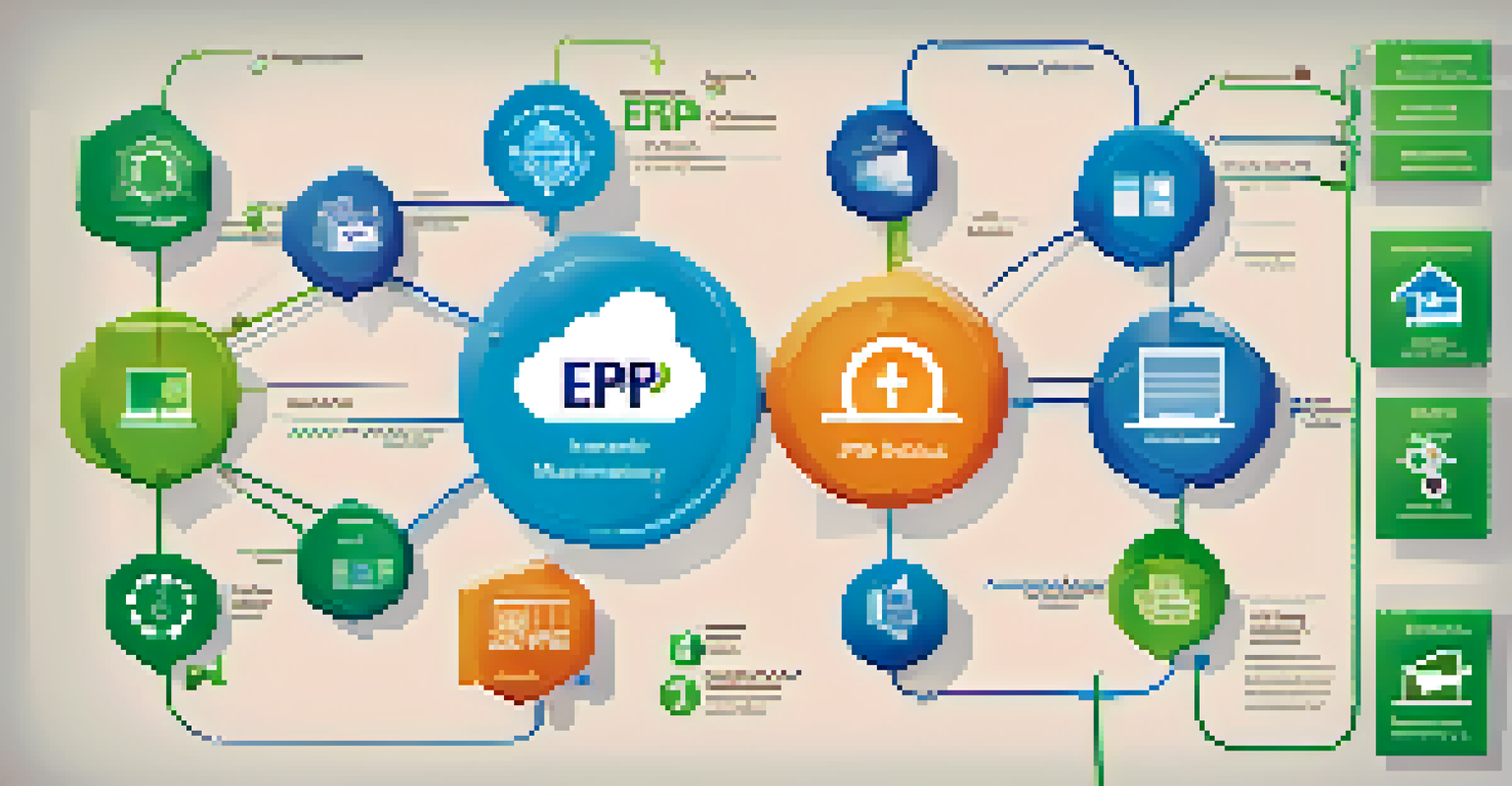The Benefits of Using ERP Software in E-commerce

Streamlining Business Operations with ERP Software
In the fast-paced world of e-commerce, efficiency is king. ERP software helps streamline business operations by integrating various functions into one cohesive system. This means that everything from inventory management to customer relationship management can be handled in one place.
In the world of e-commerce, the customer is not just king, they are the kingdom.
Imagine your e-commerce business as a well-orchestrated symphony, where each department plays its part harmoniously. With ERP, you can eliminate the chaos of juggling multiple software tools, reducing the risk of errors and miscommunication.
As a result, your team can focus on what truly matters: growing the business and enhancing customer experience. Ultimately, a streamlined operation leads to better productivity and increased profitability.
Improving Inventory Management for E-commerce Stores
One of the biggest challenges in e-commerce is managing inventory effectively. ERP software provides real-time visibility into stock levels, helping you avoid the dreaded 'out of stock' situation. This ensures that your customers can always find what they’re looking for.

Think of ERP as a smart assistant that keeps track of your inventory, alerting you when it's time to reorder. This proactive approach not only saves time but also helps in maintaining optimal stock levels.
Streamline Operations with ERP
ERP software integrates various business functions, enhancing efficiency and reducing errors.
By improving inventory management, you can reduce holding costs and enhance customer satisfaction. Happy customers are more likely to return, which can translate into increased sales.
Enhancing Customer Relationship Management (CRM)
Building strong relationships with customers is essential in e-commerce, and ERP software can significantly enhance your CRM capabilities. By centralizing customer data, you can gain insights into purchasing behavior, preferences, and interactions.
Data is the new oil. It’s valuable, but if unrefined, it cannot really be used.
This wealth of information allows you to personalize your marketing efforts, making your outreach feel more tailored and relevant. Imagine receiving a recommendation that perfectly matches your taste—this is the power of effective CRM.
With better customer insights, your team can address customer needs more effectively, fostering loyalty and encouraging repeat purchases. After all, a satisfied customer is your best brand ambassador.
Facilitating Data-Driven Decision Making
In the digital age, data is king. ERP software enables e-commerce businesses to gather and analyze vast amounts of data, turning it into actionable insights. This empowers decision-makers to make informed choices based on real-time information.
Consider it like having a crystal ball that reveals trends and patterns in your sales, inventory, and customer behavior. With this knowledge, you can pivot your strategies to align with market demands.
Boost Inventory Management
With real-time stock visibility, ERP helps avoid stockouts and improves customer satisfaction.
Data-driven decisions not only boost efficiency but also enhance competitiveness. In an industry where every advantage counts, ERP software can be your secret weapon.
Increasing Scalability for E-commerce Growth
As your e-commerce business grows, scalability becomes crucial. ERP software is designed to grow with you, offering features that can adapt to your expanding needs. Whether you're adding new product lines or entering new markets, ERP can accommodate those changes seamlessly.
Think of it as a flexible foundation that supports your business as it evolves. You won’t need to overhaul your systems every time you make a change, which saves time and resources.
This scalability ensures that your operations remain efficient, allowing you to focus on strategic growth rather than getting bogged down by logistical challenges.
Enhancing Financial Management and Reporting
Managing finances is a critical aspect of running any business, especially in e-commerce. ERP software streamlines financial management by automating processes such as invoicing, payroll, and expense tracking. This reduces the risk of errors and ensures that financial reporting is accurate and timely.
Imagine having all your financial data organized in one dashboard, making it easy to track performance and budget effectively. With this clarity, you can make strategic decisions that positively impact your bottom line.
Enhance Customer Relationships
Centralized customer data through ERP enables personalized marketing and fosters loyalty.
Moreover, improved financial management enhances your ability to forecast future revenue and expenses, setting you on a path to sustainable growth.
Boosting Collaboration Across Departments
In a thriving e-commerce environment, collaboration among departments is essential. ERP software breaks down silos by providing a single source of truth for all teams, from sales to marketing to logistics. This fosters a culture of collaboration where everyone is on the same page.
Picture a relay race where each runner knows exactly when to pass the baton. With ERP, teams can share information effortlessly, which improves communication and speeds up processes.

This enhanced collaboration not only leads to better performance but also cultivates a sense of unity within your organization. A cohesive team is more likely to innovate and drive success.
Ensuring Compliance and Risk Management
In today's regulatory landscape, compliance is more critical than ever. ERP software helps e-commerce businesses adhere to various regulations by automating compliance-related tasks and ensuring that accurate records are maintained. This reduces the risk of legal penalties and reputational damage.
Think of ERP as your compliance watchdog, ensuring that every transaction and operation meets industry standards. With the right tools in place, you can navigate complex regulations with confidence.
Additionally, effective risk management features in ERP software allow you to identify potential threats early on. This proactive approach helps safeguard your business against unforeseen challenges.